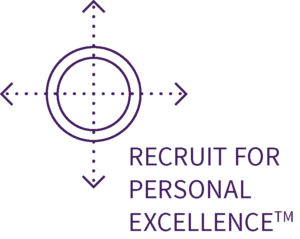With much focus on leadership in the HR press, we look at the EQ, resilience and motivation skills that every leader needs for success through and beyond COVID.

We’ve seen a great deal of coverage in the HR press devoted to ‘bad leaders‘, ‘wrong-fit CEOs‘ and ‘digital presenteeism‘ among remote workers. It’s worrying that the very people we need to haul us through and beyond the COVID crisis seem to lack the interpersonal skills to do the job, at least according to their teams.
But should that really come as any surprise? With over half of managers reporting that they hadn’t received management training before taking their role, how can we expect managers, especially those new to their role, to tackle this unprecedented business climate?
With workers feeling fatigued as the pandemic continues to impact return to work plans, it’s up to employers to be sure that their managers have the necessary skills to lead their teams with emotional intelligence, resilience and motivation.
It all starts pre-hire - Recruit for Personal Excellence™
Too often the same old job description is trotted out at the start of a recruitment campaign, or at least little more than lip service is given to reviewing it. Even less time is given to the job specification which should define the qualities and skills needed for success in the tasks listed in the job description.
Yet this is a golden opportunity to find your golden egg, among what is likely to be a huge number of applications. Really think about what the role requires. Not just management experience and professional skills, but also the softer people skills that a leader needs to motivate a team and strive for personal excellence.
These skills are emotional and social intelligence, resilience and motivation.
Leaders must have self-awareness and self-regulation
Self-awareness and self-regulation are two of the top skills that every leader must have.
Leaders who can actively demonstrate these skills will communicate well. They will listen, think and respond appropriately, however challenging the situation may be. This doesn’t come naturally to everyone, but with assessment, training and coaching, anyone can improve.
We should not expect every manager or leader to intuitively know how to respond under pressure. Intuition can be a dangerous thing – calm, considered and rational response is required, not knee-jerk gut-feel.
Social awareness and regard for others
Leaders must also show social awareness and regard for others to avoid work-related anxiety and burnout in their teams. In particular, they should tune into digital presenteeism. Just because the team isn’t visible, doesn’t mean that managers can afford to inadvertently overlook or ignore the digital overwhelm that can threaten performance and well-being.
To motivate and be motivated
The ability to be both motivated and motivating is a core leadership skill. But a CV will only tell you about past performance, and how often do you quiz a previous report on how motivating your candidate was as a leader? Most of the time, you only have your candidate’s word to go on.
First, identify the motivating factors required for the role – simply to hit a sales target? Or is it to be energised by the purpose of the role? Or having the autonomy to create really great work? Then assess your candidates for those motivating factors. As well as helping you to select the right person for the role, this insight will help your new hire or promotion to develop as a strong all round performer.
Motivation is highly individual. Get it right and the results will speak for themselves, get it wrong and you could have a mass exodus on your hands.
Assertive ... or aggressive?
The threat of mass exodus also looms when resilience goes bad. We are always disappointed to hear stories of leaders using fear tactics to mask a deficit of personal resilience.
Leaders without sufficient resilience will look to pass the buck of poor performance, to detract from their own insecurity or low self-esteem. We’ve all had managers who may have been over-promoted. They suddenly find themselves out of their depth and resort to excessive pressure or even aggression to deflect attention away from their own shortcomings.
These are the managers that people leave. However, with assessment, training and coaching, combined with a willing attitude, these leaders can develop their resilience. This is especially so when coupled with improved self-awareness and self-regulation.
To sum up ...
Support your leaders throughout your organisation. Select them well. Train them. Coach them. Invest in them to lead happy, healthy and productive teams that can weather any storm, or pandemic.
Recruit for personal excellence™
Emotional and social intelligence, resilience and motivation are core skills in today’s workplace. Including assessment for and ongoing development in these vital skills will help to ensure that your new hires and internal promotions drive success across your organisation. Contact us for a free trial of flowprofiler® to find out how it will take your professional development strategy and recruitment process to the next level.






